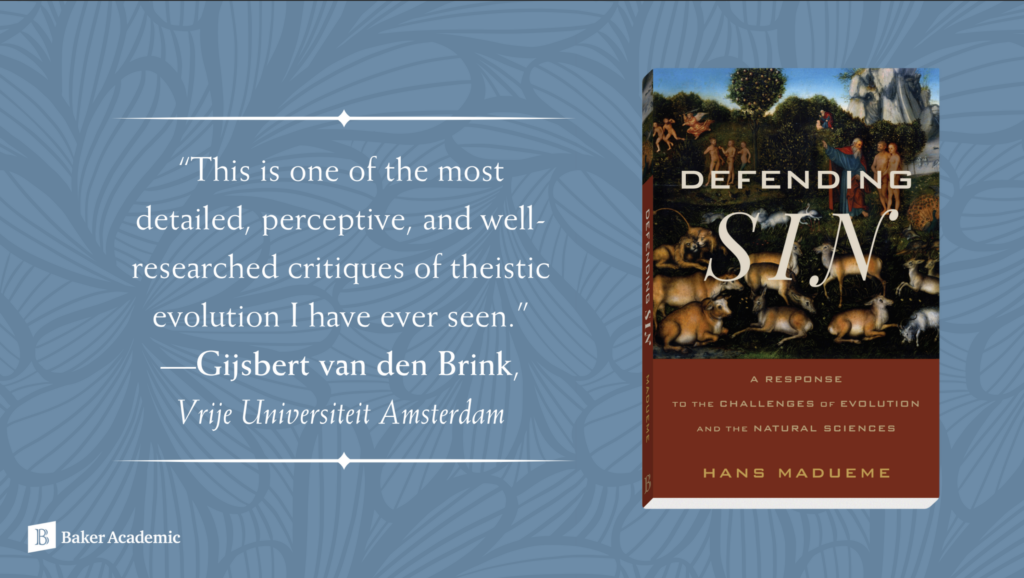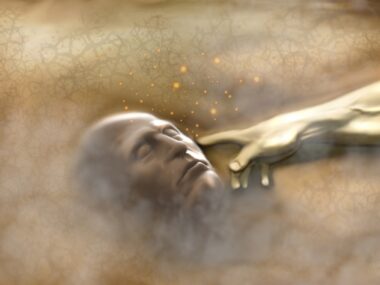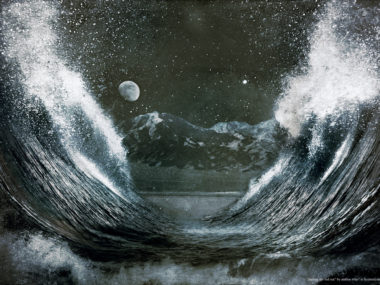This final post addresses one more area of conflict between mainstream science and Christian doctrine: the fall of Adam and Eve. Here the theological tensions with evolutionary theory come from multiple directions.
The views expressed in this article reflect those of the author, and not necessarily those of New Creation.
The Doctrine of the Fall

To begin, the fall implies that Adam was created free from sin in a state of moral integrity. As the Westminster Confession puts it, “[our first parents] fell from their original righteousness and communion with God.” This idea that humanity was once without sin is impossible to reconcile with evolution; after all, evolutionists believe sin has always been part of the human experience. Yet the absence of sin in Genesis 1 and 2 is essential to the logic of the biblical story. The redemptive-historical arc of Scripture assumes that righteousness prevailed at the beginning. In Genesis 1, God made everything “good” (Gen. 1:10, 12, 18, 21, and 25), indeed “very good” (v. 31), which points to an original creation free from sin.
Salvation does not make sense without an original state of innocence. The present condition of humanity is abnormal; our need for redemption implies something was lost. If original humanity was not sinless at the beginning, then Christianity is a strange message about God saving us from a problem of his own making! Not just strange but cruel, like a doctor who intentionally introduced a deadly disease only to turn around and offer the remedy. In effect, we have God the redeemer versus God the creator.
That’s bad, but it gets worse. If we lose a historical Adam, we lose the very integrity of God. It all comes down to the nature of evil—where does it come from? What is the origin of evil? That question has three possible answers.
First, Cosmological Dualism. In this view, Evil and Good are eternal principles that have always been and always will be. Evil is eternal, from everlasting to everlasting. It has always existed, alongside God. According to Dualism, God and Evil are two eternal principles comprising ultimate reality.
Pastorally, when people go through suffering and experience the brokenness of the world, if evil has always existed, you cannot tell them that’s not the way it’s supposed to be.1 If evil is eternal, then goodness is not the norm. If Dualism is true, then both goodness and evil define reality, and thus God is not completely sovereign. Evil is always there, and God cannot conquer evil. Indeed, evil is a kind of second deity. Obviously, Dualism is antithetical to biblical Christianity.
The second possible answer is Cosmological Monism. Here, evil and good find their origin in the One, the Ultimate Reality, namely God. In God’s very being lies a contradiction, a conflict, between the forces of good and evil. God’s nature itself is morally ambiguous; he is holy and unholy, pure and impure. Light and darkness pour forth from the being of God.
And therein lies the problem because if evolutionary scientists have banished Adam from theology, then some other event in history allowed sin to enter God’s creation—otherwise, we are left with Monism. And if Monism is true, creation was never “good” or “very good”; evil has no distinct origin and is thus part of the warp and woof of creation. This is the price you pay for evolution if there’s no entry point for sin in the historical past. A heavy price indeed because if God’s original creation is mingled with evil, then we lose the holiness of God. Monism is clearly not biblical Christianity.
Only one answer remains to the question: how do we explain the existence of evil? The only other option is that evil entered God’s world at some point in history. Hence, we can say: that’s not the way it’s supposed to be—we can only say that if there was a historical fall of Adam and Eve.2 God’s good creation was ruptured by the entrance of sin. If evil arose in the world historically, then we can affirm that God’s creation is inherently good, and that evil is an aberration. Evil is not the way it’s supposed to be. The biblical story begins with Genesis 1 and 2 when everything was good, and sin was absent from the world. Then in Genesis 3, the fall happened. A historical fall allows us to affirm that creation was once good, and the entrance of sin was not a direct result of God’s action.
Nevertheless, suppose we scrap Adam’s fall. What follows for the doctrine of original sin? You have a fundamentally different story—because now what we call original sin is part of the engine that drives the evolutionary machine. Sin is no longer abnormal; it’s part of our biological nature. If there is no fall, then what we call sin originated in the instincts and violence of our evolutionary ancestors and is a feature built into our being that persists to this day. The problem of sin is now a problem of biology.
But if sin is a biological problem, humanity as such would be inherently sinful. If evolution occurred without a historical fall, there is no way to be human apart from sin: to be human is to be sinful. While the reality of sin is emphasized in the Reformed tradition (e.g., total depravity), we’re not saying the nature of humanity is sinful. Adam and Eve, for instance, were without sin when they were created; furthermore, we will not be sinful in the new heavens and the new earth. Yet evolution makes sin intrinsic to being human.
This is disastrous for the incarnation. If humanity is inherently sinful, we are on the horns of a Christological dilemma. On the one hand, if Jesus was fully human, he must have been sinful; on the other hand, if Jesus was sinless, he wasn’t in fact fully human. Neither option bodes well for Christianity. Salvation is only possible if Jesus shared in our full humanity.
Conclusion
As I said at the beginning of the first post, the theological implications of accepting mainstream evolution are significant. The ripple effects spread widely. Original goodness, the unity of the human race, and the fall are not trivial doctrines; they are connected to the main biblical story. Let me offer three concluding thoughts.

First, evolution challenges the integrity of Christian theology. Biblical doctrines are not disconnected from each other. We should not think of doctrines as marbles in a jar, atomistic pieces that we can shuffle around, or remove entirely. Rather, Christian doctrines are organically connected like threads in a garment—start pulling the thread, and the whole thing unravels. Bear in mind, we have only been looking at the doctrine of sin, but evolution raises substantial questions across the whole scope of theology.
Second, Christians should not be fearful about science given that “all truth is God’s truth,” and believers have the privilege of doing science that privileges evidence from special revelation. Nor should we be “anti-science” or “anti-expertise,” because we have much to learn from the expertise of scientists, whether they are Christians or non-Christians, thanks to God’s common grace—He shines in all that’s fair.3 Science is a divine gift that we receive with gratitude, and we all benefit from science every day. Having said that, we are also committed to classical, orthodox Christianity, including the authority of the written Word of God. When evolution clashes with doctrines that are rooted in special revelation, we cannot be neutral or on the fence. We must humbly and respectfully disagree.
Third, we should not leave these issues solely to creationist ministries. Among laypeople, these ministries have dominated the conversation for too long, in part because many theologians and biblical scholars have chosen to keep their hands clean. At times, the stridency from some quarters falls short of what Jesus calls us to. However, I’m grateful for creationist ministries that have held the line and defended the biblical position in the face of constant mockery and criticism. Yet more of us need to engage these issues theologically rather than with a focus on apologetics. We should begin with the tenets of orthodox Christianity and then see what implications they have for the scientific claims about origins. That way, our thinking is rooted in the soil of the biblical story, rather than merely reacting to the preferred scientific hypotheses of the day.

Christianity & Evolution: More Antithesis Than Harmony Series
- Christianity & Evolution: More Antithesis Than Harmony, Part I
- Christianity & Evolution: More Antithesis Than Harmony, Part II
Footnotes
- See the classic book on sin: Cornelius Plantinga, Not the Way It’s Supposed to Be: A Breviary of Sin (Grand Rapids: Eerdmans, 1995). ↩︎
- One other possibility: sin entered creation through the fall of angels—not the fall of Adam. In this view, evolutionary suffering and death is a result of the angelic fall. See Michael Lloyd, “The Fallenness of Nature: Three
Non-Human Suspects,” in Finding Ourselves after Darwin: Conversations on the Image of God, Original Sin, and the Problem of Evil, ed. Stanley Rosenberg (Grand Rapids: Baker Academic, 2018), 262–79. My two main objections are that nowhere does Scripture support the idea that angelic sin had such a radical effect on the world; and further, while an angelic fall is a biblical doctrine, Adam’s sin—not Lucifer’s—ruptured God’s good creation. ↩︎ - See Richard Mouw, He Shines In All That’s Fair: Culture and Common Grace (Grand Rapids: Eerdmans, 2001). ↩︎












good points and aMEN science is a bibklical creationist best friend. its not bscience that is a problem but human incompetence. Christians should see science as making the case for God and genesis. Amen.